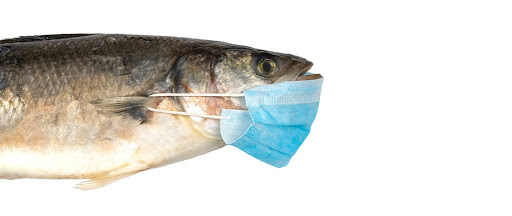The Indonesian Ministry for Tourism and the Creative Economy is expanding and socializing its protocols for Cleanliness, Health, Safety, and the Environment (CHSE) for use by Indonesia’s diving and snorkeling industry.
The Ministry of Tourism has socialized CHSE standards for the diving and snorkeling sector on Tuesday, 06 October 2020, that are now shared on the Ministry’s Youtube channel.
The Ministry’s CHSE Team leader for diving and snorkeling, Abimanju Carnadie, said the training is based on input provided by the Ministry of Health, the World Health Organization (WHO), and related agencies.
To complement the specialized training, the Tourism Ministry has also prepared a 37-page guide, presented in Indonesian and English.
The publication provides general guidelines on CHSE for people participating in diving and snorkeling activities. Recommendations on not sharing diving equipment, maintaining physical distance, and other safe practice is presented.
The handbook and course material presented by the Ministry of Tourism provides details on 15 general guidelines for CHSE standard diving and snorkeling:
- Dive industry operators and customers are reminded to ensure they are medical healthy before undertaking water sports. This advice takes effect before diving and includes, first and foremost, only boarding a flight to a diving destination if the traveler is healthy.
- Everyone should use Personal Protection Equipment (PPE) – at a minimum facial masks or face shields.
- Practice physical distancing by maintaining at least one-meter of open space. This distance has been reduced from the previously recommended two-meters, which, according to operators, was not practical for use in the field. Physical distancing efforts can be enhanced by limiting the number of participants in a diving group, configuring distanced seating on dive boats, and staggering diving schedules.
- All water sports operators must provide a sufficient number of handwashing stations and hand sanitizers for use by both staff and guests.
- All equipment used in providing diving and snorkeling activities must be disinfected at least three times a day, and before and after each new cycle of use.
- Take the necessary steps to maintain high-quality air in all places used by staff and customers. Open areas exposed to breezes and sunlight are preferred. Places equipped with air conditioning should ensure that the air conditioning systems’ filters are cleaned on a routine basis.
- All those undertaking diving and snorkeling activities must complete a Diver’s Medical Clearance based on the Divers Alert Network (DAN) guidelines or those of a similar agency. An additional “risk-assessment survey” provided by the Indonesian Ministry of Health should be completed before engaging in diving activities.
- Tourists traveling on live-aboard vessels are required to bring a current certificate verifying a “negative” result for the coronavirus proven by a Rapid Test or PCT Swab Test. Divers following land-based dive expeditions are only required to undergo a body temperature check before a diving or snorkeling activity.
- Live-aboard operators are directed to limit the number of guests carried on their vessels to enhance physical distancing.
- Regular temperature checks should be undertaken to ensure that no member of staff or client’s temperatures exceed 37.3 degrees Celsius. Anyone registering a temperature over 37.3 degrees Celsius in two consecutive tests performed 5 minutes apart should be refused entry/access and sent to a nearby medical facility.
- Individuals with temperatures below 37.3 Celsius but manifesting symptoms consistent with a respiratory or COVID-19 infection must be refused entry and referred to a nearby medical facility.
- Workers confirmed to be infected or suspected of suffering from COVID-19 must self-isolate until a doctor confirms that they are again free of the virus.
- Dive operators should follow the established guidelines to a clean and healthy lifestyle that includes consuming a nutritious diet, 30 minutes of physical activity each day, and a minimum of 7-hours of sleep each day.
- Dive operation management must provide information and training to all employees on cleanliness, hygiene, health, and safety. Regular audits must be made to ensure that the CHSE protocols are in place and being rigorously followed.
- Dive operators are required to supply closed trash receptacles for the disposal of Personal Protection Equipment (PPE) and other trash that might serve as a medium for transmitting the coronavirus. The final disposal of all trash and wastewater must be done safely.
